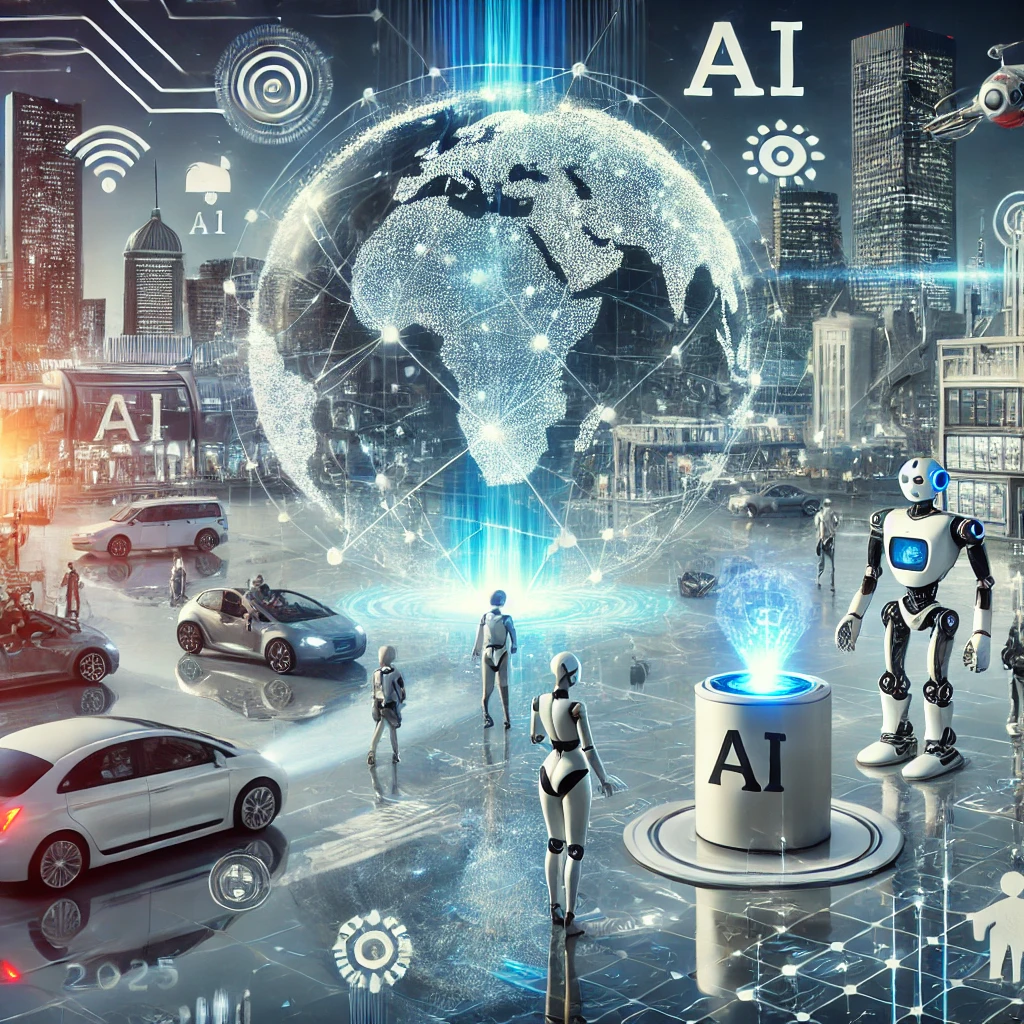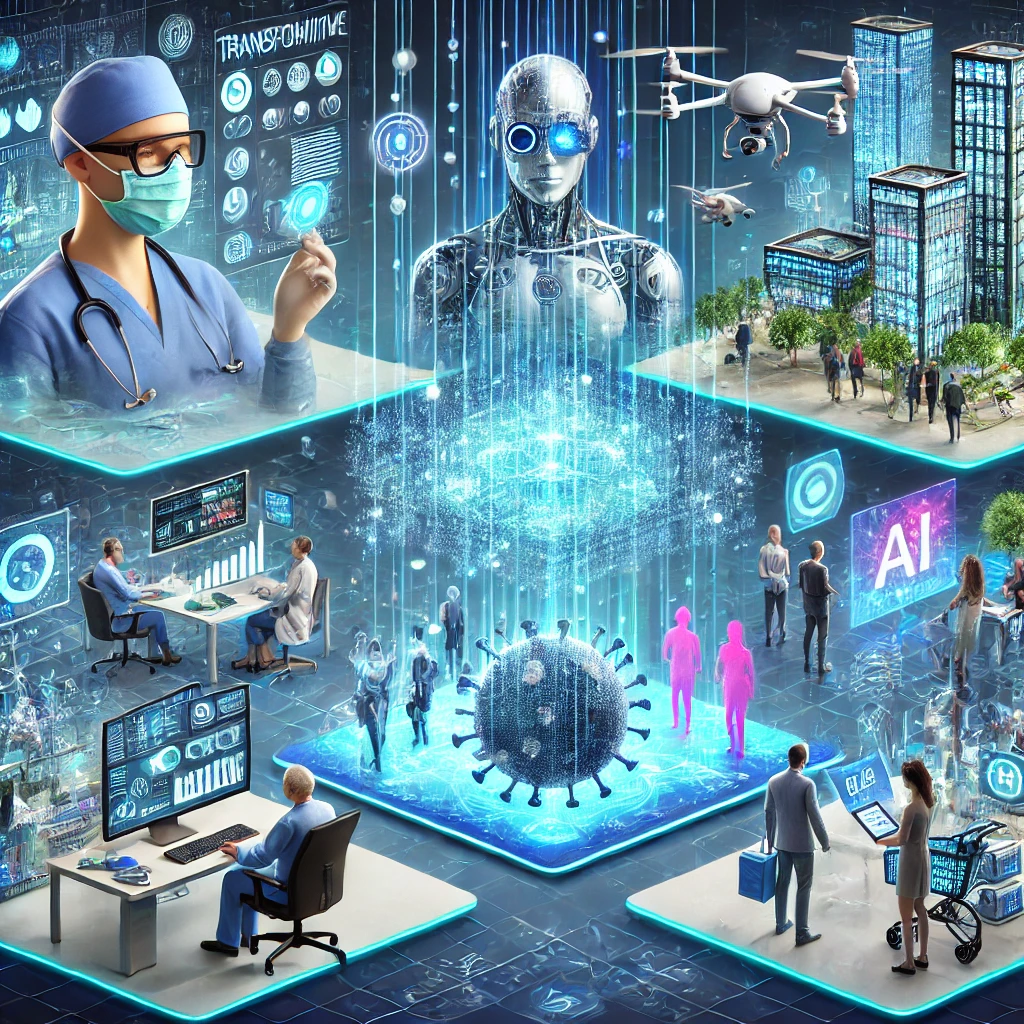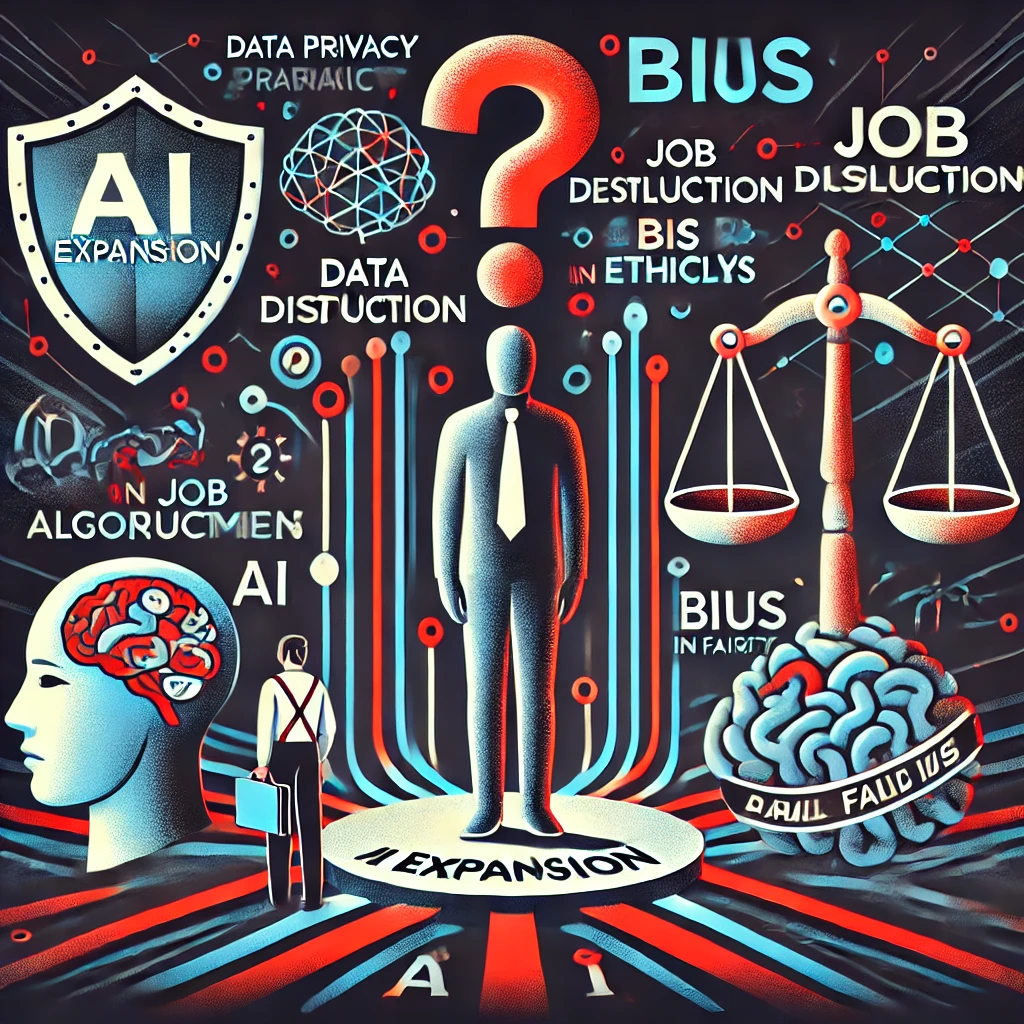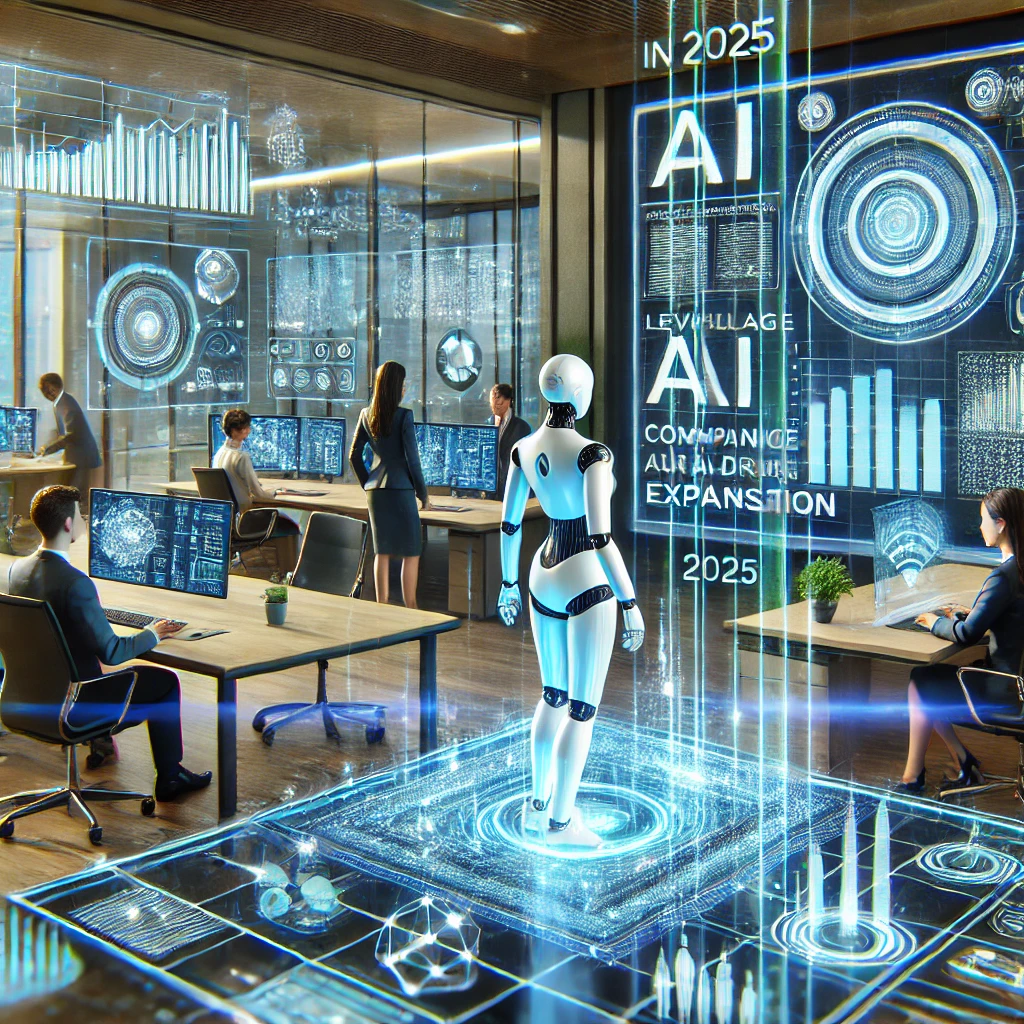How AI Expansion Will Transform the Future: Key Insights for 2025
Artificial Intelligence (AI) is no longer just a futuristic concept; it is rapidly becoming an integral part of our daily lives. By 2025, AI expansion is poised to reshape industries, redefine jobs, and bring about unprecedented changes in how we live and work. This article delves into the key areas of AI growth, its applications, and what it means for businesses and individuals, all while ensuring it’s optimized for search engines with minimal difficulty.
What is AI Expansion?
AI expansion refers to the widespread adoption and integration of artificial intelligence technologies across diverse sectors. From conversational AI, like ChatGPT, to autonomous vehicles, AI is transforming how tasks are performed, often with greater efficiency and precision than human effort.

1. Industries Benefiting from AI Expansion
a. Healthcare
AI is revolutionizing healthcare through:
- Predictive diagnostics using machine learning algorithms.
- Robotic surgeries with enhanced precision.
- Patient management systems leveraging AI for personalized treatments.
b. Education
AI-powered tools like personalized learning platforms and virtual tutors are helping educators provide tailored experiences for students.
c. E-Commerce and Retail
With AI, retailers are offering:
- Personalized shopping experiences using recommendation algorithms.
- Efficient supply chain management.
- Automated customer service via chatbots.
d. Finance
In the finance sector, AI is instrumental in:
- Fraud detection through real-time data analysis.
- Algorithmic trading, which optimizes investment strategies.
- Risk assessment for loans and credits.

2. Key Technologies Driving AI Expansion
- Natural Language Processing (NLP): Used in chatbots and voice assistants, it enables machines to understand and respond to human language effectively.
- Machine Learning (ML): Helps systems improve their performance over time without explicit programming.
- Computer Vision: Powers applications like facial recognition and autonomous vehicles.
- Robotics: Enhances manufacturing and logistics operations.
3. Benefits of AI Expansion
- Efficiency Boost: AI reduces the time needed for repetitive tasks, improving productivity.
- Cost Savings: Automation minimizes operational costs.
- Enhanced Decision-Making: AI provides insights through data analysis, enabling smarter business strategies.
- Accessibility: Tools like AI-driven language translation promote inclusivity.
4. Challenges and Ethical Considerations
a. Data Privacy
AI systems rely on massive datasets, raising concerns about user privacy and data misuse.
b. Job Displacement
While AI creates new opportunities, it also risks automating jobs, particularly in routine-based roles.
c. Bias and Fairness
AI systems can inadvertently perpetuate biases if trained on unbalanced datasets.
5. How Businesses Can Prepare for AI Expansion
- Adopt AI Early: Companies that embrace AI are likely to gain a competitive edge.
- Invest in Training: Equip employees with skills to work alongside AI technologies.
- Focus on Ethics: Establish guidelines to ensure responsible AI usage.
6. The Future of AI Expansion: 2025 and Beyond
The next few years will see exciting developments:
- AI Agents: Intelligent assistants capable of handling complex tasks like planning travel itineraries.
- Autonomous Systems: From drones to self-driving cars, autonomy will be a key focus area.
- AI in Space Exploration: NASA and private players are leveraging AI to navigate space challenges.
AI Expansion in 2025: The Game-Changers
- AI Agents and Automation
By 2025, intelligent AI agents capable of complex reasoning will dominate industries. These agents will manage tasks like:- Travel planning with dynamic pricing insights.
- Personalized customer support.
- Real-time financial planning.
OpenAI, for instance, is already targeting over a billion users with its advanced AI services
.
- Healthcare Revolution
AI will enhance precision medicine by:- Identifying disease patterns using advanced algorithms.
- Automating diagnostic imaging for faster analysis.
- Managing large-scale patient data securely.
Robotics will assist in surgeries, offering unparalleled precision and reduced recovery times
- Education Transformation
Virtual AI tutors will make personalized education more accessible globally. Schools will adopt machine-learning models to monitor individual progress and provide tailored feedback. - Climate and Sustainability
AI-driven solutions will tackle climate challenges, including:- Monitoring and reducing carbon emissions.
- Optimizing renewable energy grids for efficiency.
- Analyzing climate patterns to predict and mitigate disasters.
- Smart Cities and IoT Integration
Cities will adopt AI for better traffic management, energy efficiency, and public safety. AI-powered IoT devices will connect homes, making life more convenient.
AI Expansion: Global Trends by 2025
- Economic Shifts
Countries leading in AI innovation will see increased global influence. AI will contribute an estimated $15.7 trillion to the global economy by 2030, with significant impacts already visible by 2025.
- Workforce Evolution
While AI may displace certain jobs, it will create opportunities in AI-related fields, data analysis, and advanced manufacturing. Governments will need to invest in retraining programs. - Consumer-Centric Innovations
AI personalization will redefine customer experiences, from e-commerce platforms offering tailored recommendations to financial institutions providing adaptive savings plans.
Challenges in AI Expansion
- Data Privacy Concerns
The reliance on large datasets raises ethical questions about user consent and data security. - Bias and Fairness
AI systems must be trained on diverse datasets to avoid perpetuating inequalities. - Regulation and Governance
Governments worldwide are debating AI oversight to ensure responsible usage while fostering innovation. 
Preparing for 2025: How Businesses Can Leverage AI Expansion
- Invest in AI Tools
Businesses must adopt AI-driven analytics to stay competitive. - Enhance Employee Skills
Upskilling employees to work with AI technologies is crucial for sustained growth. - Prioritize Ethical AI
Companies must align with guidelines ensuring transparency and fairness in AI applications.

AI in 2025 promises a future of possibilities, balancing innovation with ethical considerations. It’s a journey that will define the next era of human progress.
Let me know if you’d like further customization for your audience!
Conclusion
AI expansion is not just a technological advancement but a societal transformation. By 2025, it will touch every aspect of human life, creating new opportunities while posing challenges that require careful management. Businesses and individuals must adapt to this fast-evolving landscape to thrive in the AI-driven future.